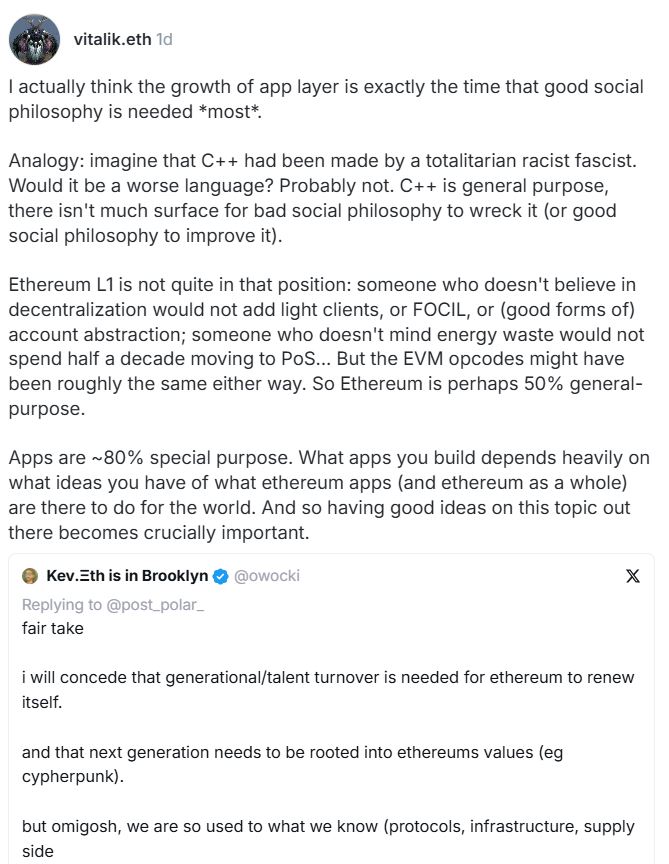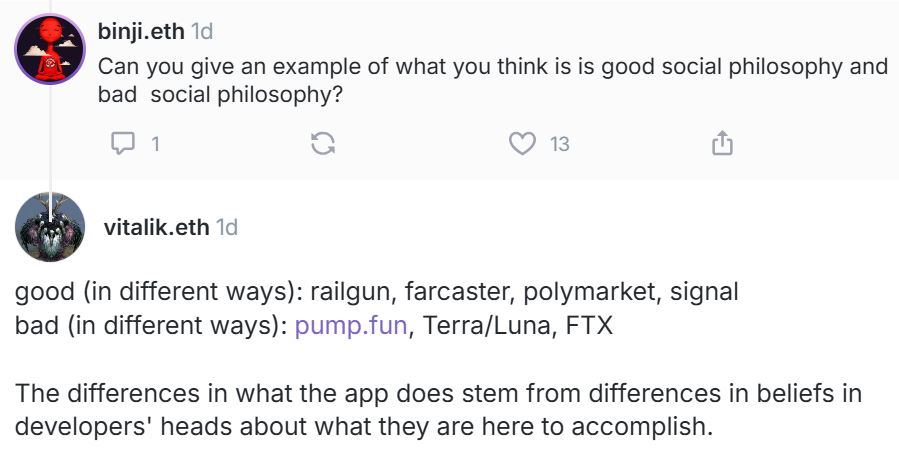Vitalik Buterin, one of the co-founders of Ethereum, emphasizes that the platform’s application layer, rather than its underlying infrastructure, is where “good social philosophy” is most critical for Ethereum’s evolution.
This application layer is where developers create decentralized applications that function atop Ethereum’s foundational framework, and it is where decisions regarding the operation of these programs are made.
In a post on April 12 on Warpcast, Buterin reacted to a user’s suggestion that Ethereum requires a new wave of developers who are aligned with its core values for rejuvenation, stating that it is indeed the application layer that is in greater need of this focus.
“The majority of applications are purpose-specific. The type of applications that are developed relies heavily on the prevailing ideas about the role of Ethereum apps, and Ethereum itself, in contributing to the world. Therefore, it’s vital to have well-formed ideas on this topic,” Buterin pointed out.

Image Credit:
In contrast, Buterin notes that general-purpose programming languages like C++ may not be as heavily influenced by the creator’s personal beliefs, given their broad applicability and limited scope for being altered by social philosophy.
“If C++ had been created by a totalitarian or a prejudiced individual, it likely wouldn’t have impacted the quality of the language itself. It would still serve its function effectively,” he remarked.
Buterin suggests that Ethereum’s layer one is somewhat similar, though it remains more susceptible to philosophical influence, as demonstrated by its shift to proof-of-stake (PoS) and the addition of light clients.
“A developer unconcerned with decentralization wouldn’t prioritize adding light clients or robust account abstraction,” he explained.
“A developer indifferent to energy consumption wouldn’t dedicate years to transitioning to PoS, even though the Ethereum Virtual Machine opcodes might have remained largely unchanged. Thus, Ethereum can be considered roughly 50% general-purpose,” Buterin elaborated.
Applications with Positive vs. Negative Social Philosophy

Image Credit:
“Applications should be designed to operate correctly behind the scenes by default. Signal serves as a solid example, despite having its own significant shortcomings. Farcaster also illustrates this well,” Buterin stated.
Conversely, he critiqued platforms like Pump.fun, the defunct Terra crypto ecosystem along with its native token Terra (LUNA), and the collapsed exchange FTX as representing poor social philosophy.
“The variations in these applications stem from differing beliefs among developers regarding their objectives,” he noted.
Magazine: Predictions for Bitcoin, legal settlements in the NFT space, and more: Highlights from the week
